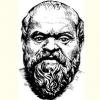Thinking Critically About Word Choice: Is "Tradecraft" the Right Word?
“When I use a word,” Humpty Dumpty said, in rather a scornful tone, “it means just what I choose it to mean—neither more nor less.”
“The question is,” said Alice, “whether you can make words mean so many different things.”
“The question is,” said Humpty Dumpty, “which is to be master—that’s all.”
--Lewis Carroll, Through the Looking Glass
When Better Buying Power (BBP) 1.0 was first issued in September 2010, then Undersecretary of Defense for Acquisition, Technology, & Logistics (USD(AT&L)) Ashton Carter used the word “tradecraft” when describing one of the five “areas” of BBP initiatives. The area was called “Improving Tradecraft in Services Acquisition.” The initiatives that were subsequently identified under this area were:
· Create a senior manager for acquisition of services in each component, following the Air Force’s example
· Adopt uniform taxonomy for different types of services
· Address causes of poor tradecraft in services acquisition
· Increase small business participation in providing services
“Tradecraft” was also used by current USD(AT&L) Frank Kendall in the 2015 Defense Acquisition Performance Assessment:
The objective is to see how well we are doing, learn from these generalities, and change our policies and tradecraft as we seek to improve outcomes.
It would seem that both Carter and Kendall are using “tradecraft” to mean the knowledge and skills for a particular occupation. However, that’s not what “tradecraft” actually means, nor is it commonly used in that sense. According to Merriam-Webster online dictionary (www.m-w.com), “tradecraft” means “the techniques and procedures of espionage”. The Oxford English Dictionary (OED) online (www.oed.com), gave three definitions of “tradecraft” dating as far back as 1812:
a. A trade-guild
b. Skill or art in connection with a trade or calling; specifically skill in espionage and intelligence work
c. The craft or art of trading or dealing
In “’Tradecraft’ Infiltrates the Language” lexicographer Neal Whitman describes the resurgence of “tradecraft” in the language:
Tradecraft, which has been spy jargon since at least the 1960s, has been making its way into more mainstream consciousness recently, as we hear about operations like the search for Osama bin Laden, or about Edward Snowden's training as a spy. Maybe you were thinking that it referred to the knowledge and skills for any particular occupation, but tradecraft is a good example of how words, compounds, or phrases with seemingly transparent meanings can settle into semantic idiosyncrasy through historical circumstance.
Whitman uses a quote from Agent Maya in the movie Zero Dark Thirty to illustrate its most common use:
“Over the course of two months he's called home from six different pay phones, from two different cities, never using the same phone twice. And when his mother asked him where he was, he lied. He said that he was in a place in the country with bad cell reception—implying he was in the Tribals—but he was in Peshawar. I'm sorry, but that's not normal guy behavior. That's tradecraft.”
The article continues:
These days, the most common meaning of tradecraft is indeed the one that Agent Maya had in mind. The Corpus of Contemporary American English, which contains 450 million words of English from 1990 through 2012, has 56 examples of tradecraft or trade craft, and of them only four (about 7%) do not have an espionage-related meaning. One of them refers author Paul Theroux's craft as a writer; one refers to medical skill; one refers to political savvy in dealing with upset constituents; and the last is a proper noun, apparently the name of an online travel advisory service (though I was unable to locate a current website for it). The remaining 93% of the COCA hits are more like these:
"Poor tradecraft, meeting in the open like this," Jake said.
It sure didn't sound like any CIA tradecraft I'd ever learned—but I wasn't going to argue.
Regarding the OED definition, Whitman explains:
However, tradecraft didn't start out with this intelligence-related meaning. The Oxford English Dictionary has it from 1812 with the meaning "the craft or art of trading or dealing." This citation from 1899 illustrates it well: "It is a lesson in tradecraft … to see how the girl holds her own with the dealers." And even now you can find examples like those lonely four that I found in COCA, as well as the occasional company name...
While it would not seem out of the ordinary to hear this use of “tradecraft” on an episode of Downton Abbey, the broad meaning of the word is virtually dead in Contemporary English. “Tradecraft” has settled into semantic idiosyncrasy. While I’m not above purloining a word from another field if I find no other word as apt, there are plenty of words that could have been used to describe the particular BBP area (“skill”, “expertise”, and “proficiency” come to mind). As acquisition professionals, we have a hard enough time communicating in the language of acquisition without adopting words from other fields (no matter how cool they sound). The Plain Language Action and Information Network (PLAIN) advises us to “understand your readers and match your language to their needs” (see http://www.plainlanguage.gov/howto/wordsuggestions/index.cfm). When choosing words, the objective should be to communicate, not to impress. Even if “tradecraft” meant what the authors of BBP thought it meant, its obscurity would still have made it a poor choice.
Eavesdropping, making dead drops, drycleaning--that's tradecraft. Creating senior manager positions in charge of service acquisition, adopting a uniform taxonomy for different types of services, increasing small business participation in service acquisition--that’s not tradecraft.

.gif)



5 Comments
Recommended Comments